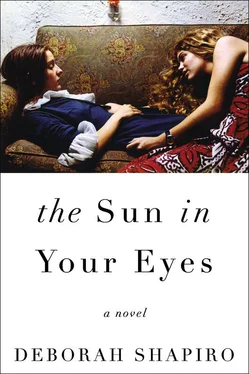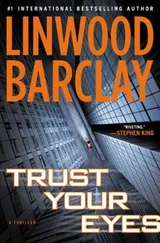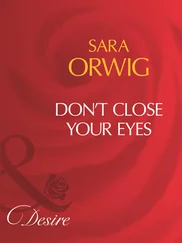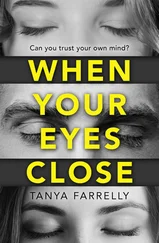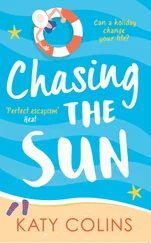“I know! He was only twenty-four? God. It’s like once you hit twenty-five, you stop using Keats as a measure for accomplishment. At twenty-seven you stop using all those dead twenty-seven-year-olds. And then, I don’t know, you try to find some late bloomers to admire.”
“Grandma Moses.”
“Grandma Moses. Father Time.”
“Father Time is eternal. That’s different.”
When had Keats ever been a model for Lee? I remembered seeing the Norton Anthology on the floor of her room, its onionskin pages unmarked. But what had I known? Nothing of Noah Stone’s sad flaccidity. And what had I really known about Rodgers? And what did I know now about Lee and Andy and the state of my marriage? About what was happening inside me? All I knew was that for the first time since pregnancy hormones had flooded my body, I suddenly wasn’t so, so tired.
THIS WAS SHAPINGup to be the kind of night I no longer had, when my life lay ahead of me like an ocean and I could swim out beyond any mistake. At least, that’s what my early twenties had felt like.
After college, both Lee and I moved to New York. Lee was working as an administrative assistant at a nonprofit for reproductive rights, a short-staffed and underfunded organization, which made her position fairly thankless, the kind you might take to pay your dues before applying to law school or pursuing a future in public policy. If you lacked either pragmatism or idealism, then it was merely a drab, difficult, not very remunerative job. Lee never struck me as especially pragmatic or idealistic (she’d never mentioned law school or public policy) so her motivation remained unclear to me, but I suspected it was a way to distance herself from her mother’s fabulousness. I had enrolled in a comparative literature Ph.D. program I would eventually abandon, and I was writing short stories nobody wanted to publish. Lee read everything I showed her and I loved that she loved my description of a small window with chintz curtains in the basement of a suburban house. I loved the notes she wrote in the margins. “This is hit hard on the chin music.” “Failure of sex.” “Oh my fucking God!” Her belief in me was legitimizing. Why would she take the time to read my work if it wasn’t good, if it wasn’t worth it? Why would she spend so much time with me if I wasn’t worth it?
And we did spend a lot of time together. We may as well have been dating each other. We went to a party once in a packed Brooklyn apartment where a young woman told us how she and her fiancé planned to donate the money they would have spent on wedding favors to a foundation promoting the legalization of gay marriage. She was determined, compassionate, doing her part for lesbians everywhere. She wished us the very best.
Lee took me to other parties, occasionally thrown by people I had read about. I saw the insides of homes I never would have even known existed beyond the pages of a magazine: Soho lofts bought for nothing in the seventies, Tribeca lofts bought for a little more in the eighties, whole brownstones in the Village, a penthouse on the Upper East Side. But there was something Cinderella-at-the-ball about those experiences. Something unreal, time-stamped. At the stroke of midnight this ends. There was another city for us that seemed as if it would go on forever. On a Saturday I would say, “They’re playing Gloria at Anthology” and we would go, and fall in love with Gena Rowlands, her mauve-painted nails, her cigarettes, her pocketbooks, her gun. Then Lee would say “Let’s go to the Bronx, Washington Heights, wherever Cassavetes filmed that.” So on Sunday we would go, and just walk and walk and walk. There were always more movies, more neighborhoods. There was always time.
Lee would tell me about nights when we weren’t hanging out when she would go to a party or a bar and leave with someone she would likely never see again. Maybe I was supposed to view this as self-destructive behavior, but it impressed me. I took it to be a measure of her power, over men and over me. The one-nightness of these encounters I attributed to Lee’s attachment to me. At the same time, it said: Look how easily I could leave you.
Soon enough, she did leave me, though not for a guy. Linda, increasingly bi-coastal, threw a soiree that Lee reluctantly attended. Her lack of enthusiasm was taken for aloof confidence and she was handed a two-year contract from a French fashion house to be the face of its perfume. Off she went on extended stays in Paris and to a different plane of existence, embracing the birthright she had been trying to deny. When she came back to New York, she still made time for me, but I felt as if she had outgrown and needed to break up with me. Neither of us knew how to talk about it that way, though.
It was a relief —I can leave you too —when Ben Driggs Stern came along. At three A.M. in his apartment I couldn’t recall what exactly we’d talked about over drinks, but I remembered it being witty. He took my top off. I pulled at his belt. He said, “I like you, Viv,” and set me fluttering. Somewhere in the intervening hours he also said he’d like to read something I’d written. Was that before or after he told me he was an editor at a literary quarterly people had actually heard of?
Three months later we were still seeing each other and a story of mine, “Rye, Toasted,” had appeared in the latest issue. “Rye, Toasted” was about a young man whose wife leaves him, refusing to see or speak to him. Sad and adrift on a snowy day, he goes to visit his mother-in-law in the hopes of getting through to her daughter. The young man and the mother-in-law are cut from the same cloth and have a strong affinity for each other. She makes him a sandwich and they end up sleeping together. She remembers her first love, the one before her husband. The snow is heavier than expected — the husband returns early from work, just before the roads close. The young man is stuck there for the awkward duration of the night, during which the husband, an amateur chef, expounds on the erotic nature of baking bread. And that was essentially it. A story that didn’t know whether it was a slice-of-life character study of two lonely souls with a few well-turned phrases and a cheap, obvious nod to James Joyce or if it was a carbohydrate-fueled sex farce. I wondered, of course, if Ben had published my story only because I was dating him. Did it matter? I secretly imagined this was the auspicious beginning of a career, not to mention a romance. While it didn’t return Lee and me to equal footing (we’d never been on equal footing), it narrowed the distance between our new levels.
“No, he’s great,” said Lee, after meeting Ben. “He’s not as pretentious as he first seems. Have you met his mother yet?” His mother happened to be none other than Patti Driggs, Linda West’s old nemesis. “I don’t see Linda coming to the wedding is all I’m saying,” said Lee.
The story of mine that Ben had published was the one that Lee least admired, the one she thought had “too many of those moments that are literary funny but aren’t, you know, actually funny.” Ben had told me “Rye, Toasted” had the “Olympian distance” I should strive for. That my writing wouldn’t suffer from “a colder eye.” Following his advice, I viewed him through such a lens. I began to have inklings that when he’d said, “I like you, Viv,” it wasn’t the heady beginning of something grand and passionate but rather the full extent of his feelings for me.
Despite our growing dispassion Ben invited me to spend Thanksgiving at his mother’s.
“She’s not as intimidating as she seems,” he said. “I showed her your story.”
“You what? You did?”
“She liked it. She said it reminded her of her stuff, starting out. Coming from an egomaniac of her caliber, that’s a big compliment.”
Читать дальше
